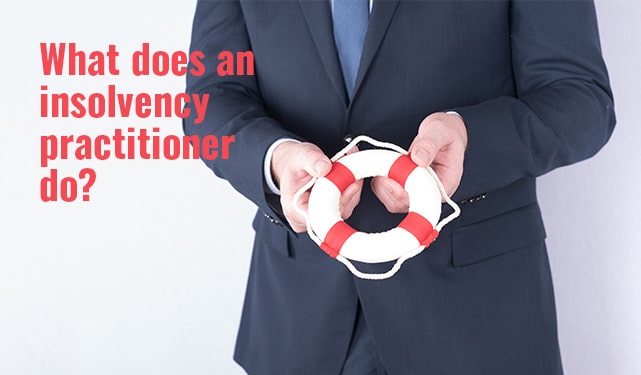The Facts About Insolvency Practitioner Uncovered
The Facts About Insolvency Practitioner Uncovered
Blog Article
Insolvency Practitioner Things To Know Before You Buy
Table of ContentsAll about Insolvency PractitionerThe 10-Minute Rule for Insolvency PractitionerInsolvency Practitioner for DummiesThe Of Insolvency PractitionerThe 30-Second Trick For Insolvency Practitioner
Whether or not you require to utilize an insolvency expert (IP) to liquidate your business depends upon various factors. While involving an insolvency practitioner for all kinds of liquidation is not a legal need, doing so can often streamline the procedure and guarantee conformity with legal needs. Liquidating a company is a vital decision that features considerable repercussions.
It is a procedure made use of when a firm does not have any kind of lenders, or every one of their financial institutions can be settled completely with legal rate of interest. Recognizing the various types of bankruptcy processes can assist you establish the most effective strategy for your business's liquidation or various other official insolvency treatments itself.
This is necessary in order to follow lawful requirements - Insolvency Practitioner. This is due to the fact that IPs have the necessary qualifications and experience to make certain that the liquidation process is carried out according to all relevant laws and guidelines. By involving a qualified insolvency professional, you can have tranquility of mind recognizing that your company's liquidation procedure will be managed properly and in compliance with the relevant legal requirements
9 Easy Facts About Insolvency Practitioner Explained
The bankruptcy practitioner is appointed as a liquidator and is accountable for managing the company and liquidator's financial debts superior obligations and possessions. This process involves selling off the company's assets and dispersing the earnings to lenders. Upon completion of the process, the firm is gotten rid of from the register at Firms Home.
Failing to do so can result in personal liability for the firm or supervisor for the lender's debts. Volunteer liquidation, which consists of Creditors' Voluntary Liquidation (CVL) and Participants' Voluntary Liquidation (MVL), is started by the firm's supervisors and shareholders when they can no more pay their debts. In a CVL, the bankruptcy practitioner is designated as the liquidator, in charge of handling company financial debts and all company properties.

Some Known Details About Insolvency Practitioner
By evaluating the knowledge and experience of prospective bankruptcy experts, you can ensure that you select an expert that has the necessary qualifications to manage your business's liquidation procedure successfully. While insolvency practitioner-led liquidation is typically one of the most ideal program of activity for companies facing insolvency, there are different approaches to think about, such as striking off and partial liquidation.
It's vital to assess all available alternatives prior to determining on the next finest service or strategy for your organization. Striking off companies' signs up is an extra simple and cost-efficient means to shut inactive or tiny companies without financial debts or properties. To strike off a company, its name is eliminated from the Companies House register by sending kind DS01.
Prior to selecting striking off, it's essential to weigh the advantages and drawbacks of this strategy and take into consideration whether it's the best option for your company. Partial liquidation is an additional alternative to insolvency practitioner-led liquidation, in which a business liquidates specific assets and liabilities while remaining to run with the continuing to be properties and responsibilities.
An Insolvency Professional will next be able to suggest you of the finest strategy to take and ensure that every little thing runs smoothly. It is not feasible to sell off a business without a liquidator. Designating an authorized insolvency professional is required for the procedure of voluntary liquidation to begin.
7 Simple Techniques For Insolvency Practitioner
It is possible to close and liquidate your business without making use of a liquidator, provided your firm is solvent and you meet the qualification demands to dissolve or liquidate it. If your firm is financially troubled, you go to this site might be required to make use of a liquidator and start formal insolvency procedures. Here are some other insightful articles pertaining to company liquidation in the UK:.
Being in a position where you're unable to pay your company's lenders is very demanding. In an effort to avoid raising the degree of financial debt, many companies try to work out directly with their creditors and consent to a casual arrangement. If the financial obligation is rather tiny and owed to one financial institution, and the lender is being cooperative, becoming part of an informal financial debt setup is possibly the very best remedy, instead of looking the internet for 'a bankruptcy professional near me'.
On the other hand, if there website here are multiple creditors and the level of financial debt is big, lenders may not be so willing or participating. To avoid liquidation or bankruptcy, it is better to work with a bankruptcy specialist to formulate formal propositions and work out with lenders in your place.
What Does Insolvency Practitioner Do?
Whilst it is a means to handle debt, there are considerable threats included with this sort of financial obligation plan - Insolvency Practitioner. If a financial institution is ready to become part of an informal arrangement (IA) where the borrower has actually accepted make regular, if lower, settlements to repay the debt, it is necessary to stick to the agreement

The lender is within their civil liberties to back out of the agreement and application the courts for your company to be liquidated at any type of time. An official arrangement that has been suggested by a bankruptcy practitioner in your place, and concurred by a lender, gives a much safer option.
Report this page